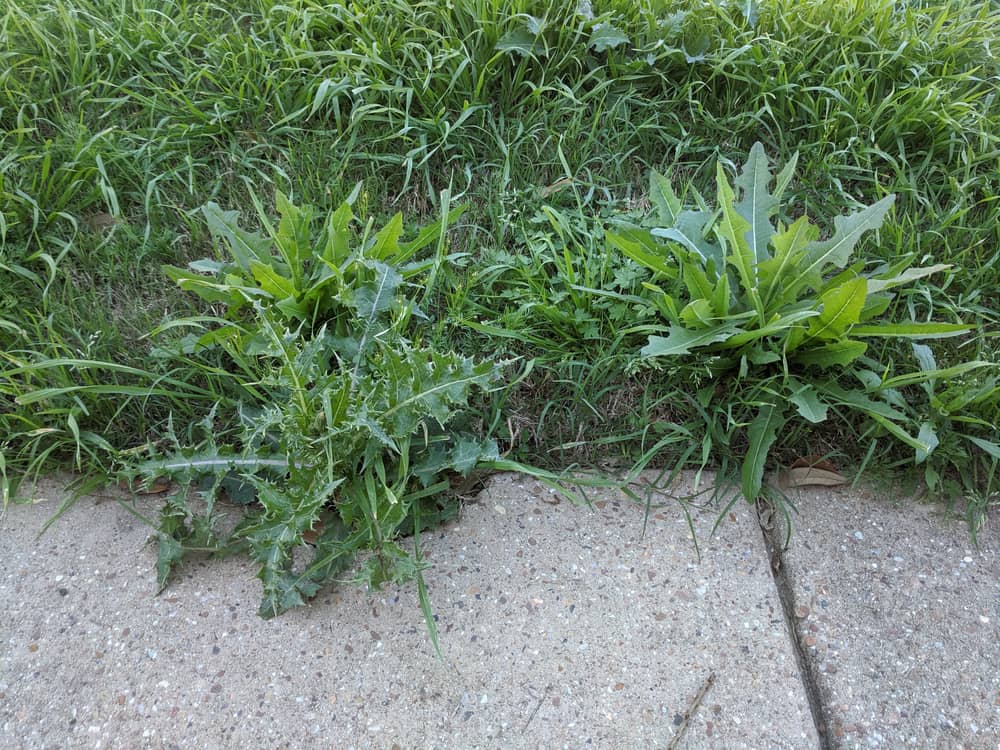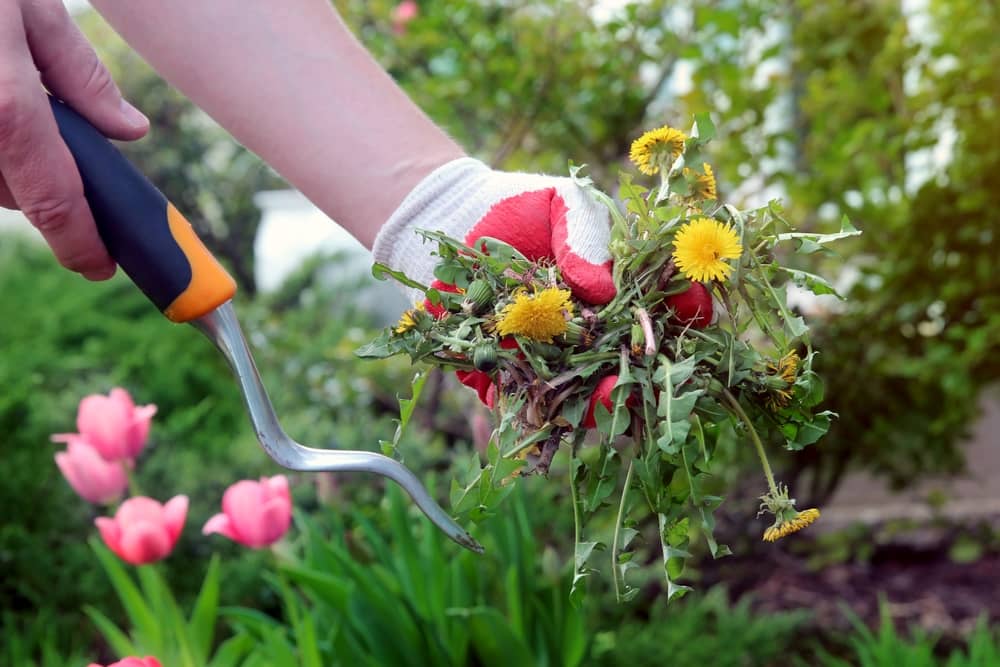
Summer brings warmth and vibrancy to your garden but also marks a prime time for weeds to flourish. While herbicides are a common solution for weed control, applying them when temperatures exceed 85 degrees Fahrenheit can harm your lawn. Here’s how you can manage weeds effectively during the hot summer months without relying on chemical herbicides.
1. Promote a Healthy Lawn
The first line of defense against weeds is a healthy, robust lawn:
- Mow at the Right Height: Keeping your grass at the appropriate height helps it shade out weed seeds, preventing them from germinating. Avoid cutting grass too short, as this weakens it.
- Water Deeply but Infrequently: Deep watering encourages deep root growth of the lawn, which helps it outcompete weeds.
- Fertilize Appropriately: Use the right type of fertilizer for your specific grass type and soil needs, which will strengthen your lawn without promoting weed growth.
Refer to our care guides for more specific information for each grass type.
2. Mulching
Mulch isn’t just for garden beds; it can be useful for controlling weeds in your lawn, too:
- Grass Clippings: After mowing, leave the grass clippings on the lawn. They act as a natural mulch, helping to retain moisture and suppress weeds.
- Organic Mulches: Consider applying organic mulches along the edges of your lawn. These can prevent weeds from encroaching on garden beds or paths.
3. Manual Removal
Sometimes, the simplest methods are the most effective:
- Hand Pulling: Regularly walk through your lawn and manually pull out weeds. Doing this after watering or rain when the soil is moist makes it easier to remove the entire root.
- Tool Assistance: Use a weeding tool for deeper-rooted weeds like dandelions to ensure you get the entire root without excessively disturbing the surrounding grass.

4. Natural Herbicide Alternatives
If you prefer a non-chemical approach, there are several household items that can be used as natural weed killers:
- Boiling Water: Pouring boiling water directly onto weeds effectively kills them without harming the environment.
- Vinegar: A vinegar spray solution can kill weeds, but be cautious, as it can also harm grass if not applied carefully.
- Salt: Salt can be used sparingly to kill weeds by disrupting water uptake. However, it should be used carefully, as it can degrade soil health over time.
5. Cultivating Good Practices
Maintaining a schedule that promotes lawn health can reduce the incidence of weeds:
- Aerate Your Lawn: Aerating helps relieve soil compaction, allowing grass to grow more robustly.
- Overseed: Planting additional grass seeds can help crowd out weeds and fill in thin spots where weeds might otherwise be established.
6. Seek Expert Advice
Consulting with Carolina Fresh Farms staff can provide you with tailored advice specific to your region and lawn type. Our experts can offer strategies for organic weed management or identify specific issues unique to your lawn. Contact us or drop by one of our locations closest to you.
7. Monitoring & Patience
Effective weed management requires regular monitoring and patience. Keep an eye on your lawn’s health and weed presence, adjusting your care routine to prevent weed outbreaks before they become a significant problem.
Managing lawn weeds without harsh chemicals is safer for your lawn and the environment. It enriches your gardening practice, making it more sustainable and rewarding. These strategies allow you to enjoy a lush, healthy, and weed-free lawn throughout the hot summer months.
